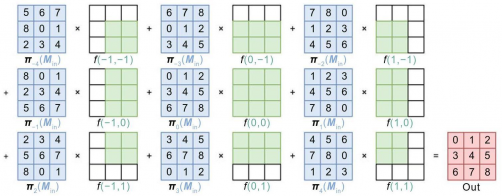UPDATE: A groundbreaking study from researchers at Southeast University and Purple Mountain Laboratories has just unveiled a revolutionary privacy-preserving scheme for secure neural network inference. This urgent development addresses critical security concerns as users increasingly rely on cloud services to process sensitive data.
As smart devices proliferate, the risk of exposing personal information during cloud transactions has surged. The new study, titled “Efficient Privacy-Preserving Scheme for Secure Neural Network Inference,” proposes an innovative solution using homomorphic encryption and secure multi-party computation to protect both user data and server models. With privacy breaches becoming more common, this scheme promises to provide robust security while maintaining quick and accurate data processing.
The research team, led by Liquan CHEN, Zixuan YANG, Peng ZHANG, and Yang MA, has meticulously designed the inference process to enhance efficiency. The scheme breaks down inference into three streamlined stages: merging, preprocessing, and online operation. This division not only simplifies operations but also significantly reduces the computational burden.
Key innovations include a novel network parameter merging approach that minimizes multiplication levels and cuts down on ciphertext-plaintext operations. Additionally, a fast convolution algorithm has been developed, which boosts computational efficiency, enabling the system to process data faster than ever before.
Testing conducted on the widely recognized MNIST and Fashion-MNIST datasets reveals impressive results, achieving 99.24% and 90.26% inference accuracy, respectively. When compared to existing methods such as DELPHI, GAZELLE, and CryptoNets, this new scheme demonstrates outstanding performance. It reduces online-stage linear operation time by at least 11%, cuts online-stage computational time by approximately 48%, and decreases communication overhead by an impressive 66%.
This urgent breakthrough in secure neural network inference marks a significant step forward in protecting user privacy in cloud environments. The implications for industries relying on sensitive data processing are profound, potentially reshaping how organizations approach data security.
For those interested in the full details, the study is published under the title “Efficient Privacy-Preserving Scheme for Secure Neural Network Inference” and can be accessed at https://doi.org/10.1631/FITEE.2400371. As data privacy becomes a growing concern worldwide, this innovative approach will likely be closely watched in the coming months.







